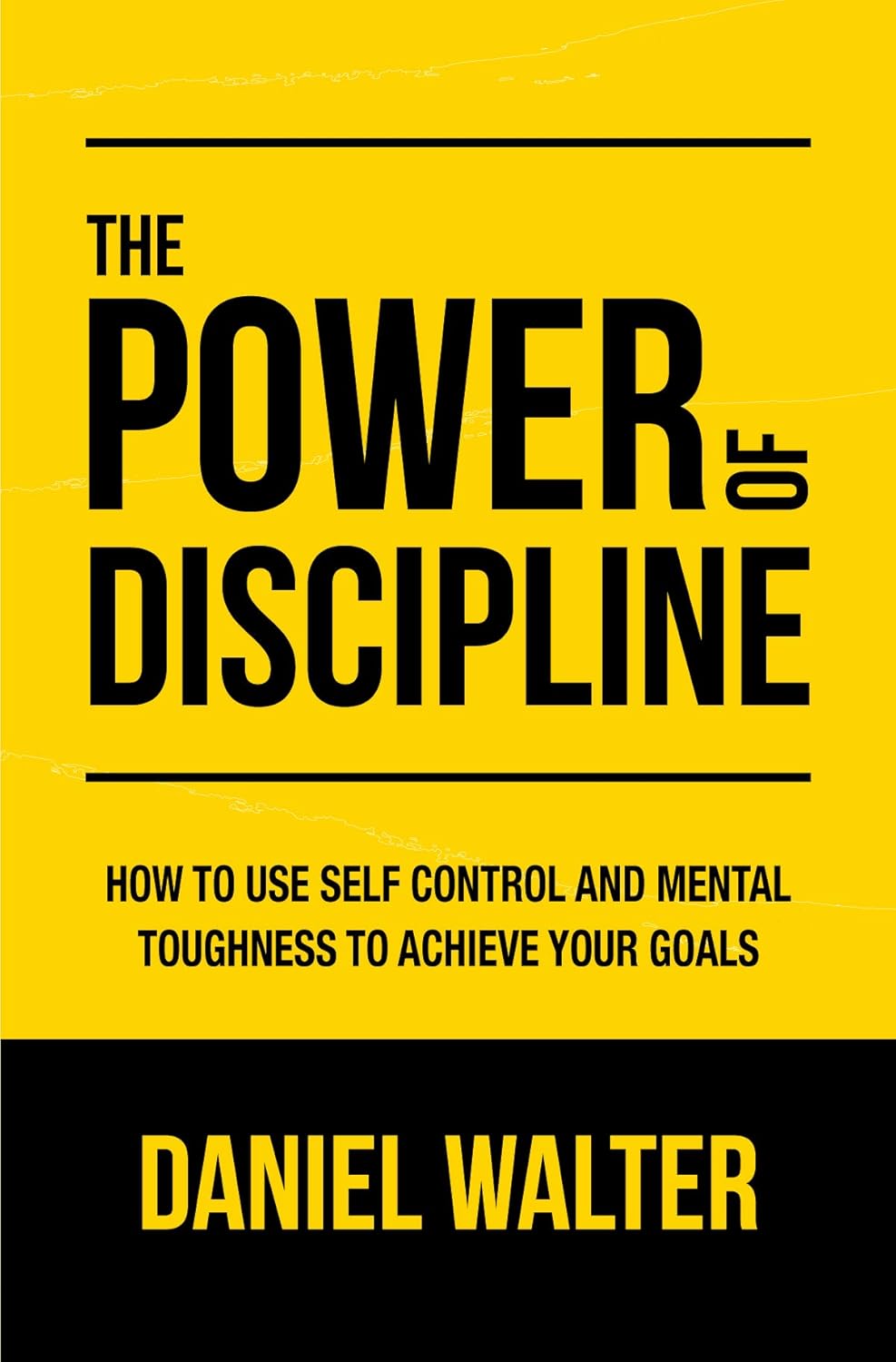
The Power of Discipline
Self-discipline is often seen as something reserved for high achievers—athletes, CEOs, military leaders—people with an almost superhuman ability to resist temptation and power through obstacles. The Power of Discipline by Daniel Walter dismantles that myth, arguing that discipline isn’t an inborn trait but a skill that anyone can develop. The book makes a strong case that success isn’t about motivation or talent—it’s about consistently doing what needs to be done, even when you don’t feel like it.
At its core, The Power of Discipline is a guide to understanding why we struggle with self-control and how to build habits that make discipline automatic. Walter explains that most people rely too much on willpower, which is both unreliable and finite. When you force yourself to resist temptation through sheer willpower, you’re fighting an uphill battle that you’re bound to lose eventually. Instead, discipline is about setting up systems that make good decisions easier and bad decisions harder. The key isn’t to have endless self-control—it’s to remove the need for self-control in the first place.
One of the most important takeaways from the book is the idea that discipline isn’t about making radical changes overnight. People fail at self-improvement because they try to do too much at once, burning out before real progress happens. Walter argues that discipline is built through small, consistent actions. Whether it’s waking up earlier, cutting out distractions, or sticking to a workout plan, the trick is to start small and build momentum. By doing something every day—even if it’s just a tiny step—you train your brain to follow through, making discipline a habit rather than a struggle.
Another powerful concept Walter explores is the role of delayed gratification. In a world of instant everything—instant entertainment, instant communication, instant food—it’s easy to get trapped in short-term thinking. But true success comes from prioritizing long-term rewards over immediate pleasure. The book reinforces this idea with research on how the most successful people are the ones who can consistently delay gratification, choosing to do what’s beneficial in the long run rather than what feels good right now. Whether it’s saving money instead of spending it, choosing a healthy meal over fast food, or putting in extra work when no one is watching, self-discipline is about making choices today that your future self will thank you for.
Walter also challenges the common belief that motivation is the key to discipline. The problem with motivation is that it’s unreliable—it fluctuates based on mood, environment, and external circumstances. People wait for motivation to strike before taking action, which is why they struggle to stay consistent. The book flips this thinking on its head: action comes first, and motivation follows. The more you take action—even when you don’t feel like it—the easier it becomes to keep going. Discipline isn’t about waiting to want to do something; it’s about doing it anyway, and letting motivation catch up later.
Another major insight from the book is the impact of environment on discipline. Most people fail not because they’re weak-willed, but because they set themselves up for failure without realizing it. If your phone is next to you while working, of course you’re going to get distracted. If junk food is in your kitchen, of course you’ll be tempted to eat it. Walter emphasizes that discipline isn’t just about resisting temptation—it’s about removing temptation altogether. Setting up an environment that supports good habits is one of the most effective ways to stay disciplined without constantly battling distractions.
Perhaps the most encouraging aspect of The Power of Discipline is that it reassures readers that self-control is a muscle that can be strengthened. No one is born naturally disciplined, but by practicing small acts of discipline daily, you build the mental toughness needed to achieve long-term goals. It’s not about perfection—it’s about persistence. You will slip up, you will have days where you don’t follow through, but the key is to keep going. Discipline isn’t about never failing—it’s about getting back on track every time you do.
What makes this book stand out is that it strips away the excuses people use to justify their lack of discipline. It doesn’t sugarcoat the fact that discipline requires effort, but it also makes it clear that anyone—regardless of background, personality, or past failures—can develop it. If you’ve ever felt like you lack the willpower to stick to your goals, The Power of Discipline offers a straightforward, practical roadmap for developing the habits and mindset needed to take control of your life. In a world where distractions are everywhere and self-control feels harder than ever, this book serves as a much-needed reminder that discipline isn’t a talent—it’s a choice.